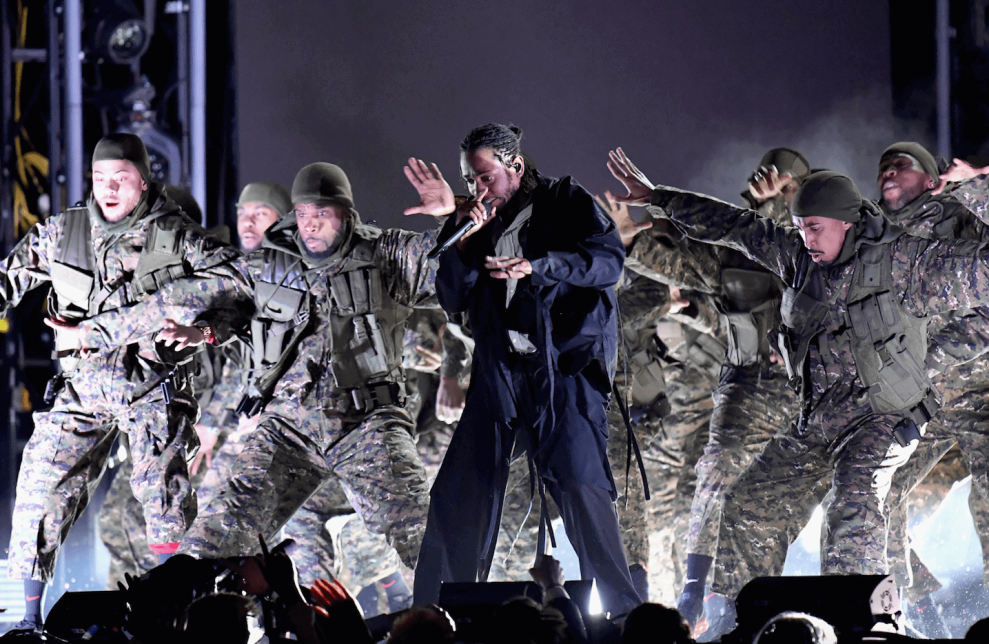(Getty Images: Photo by Jeff Kravitz)
In the early 2000’s, squeezing as many artists on to a remixed track was the biggest trend in hip-hop. One song in particular, “Touch It,” a Busta Rhymes classic, was seemingly remixed on a weekly basis. While Busta held down the original version alone, the first remix featured Mary J. Blige, Rah Digga, and Missy Elliot. The second installment featured Lloyd Banks and Papoose, while the third and final remix featured a verse from DMX. This perpetual rebirth resulted in various versions swapping spots on the Billboard Hot 100 where the song found residency in the top 30 for seven straight weeks.
Hip-hop has since evolved past the overdone remix giving way to collaborative albums. In 2017, we received the following collaborations: Without Warning from 21 Savage, Offset, and Metro Boomin, Super Slimey with Future & Young Thug, Double or Nothing from Big Sean & Metro, Quality Control: Control the Streets Vol. 1 featuring their roster, and Travis Scott & Quavo’s Huncho Jack.
These projects were designed around a single that was certain to garner the majority of streams, while the other tracks acted as fillers. For example, “Ice Tray” led the promotion for Quality Control. The single rode the wave of a one-sided feud fueled by Migos disdain towards Joe Budden. The “Ice Tray” music video casts look-alikes of Joe Budden as well as his former Everyday Struggle co-hosts.
The ongoing collaborative effort among hip-hop artists has demonstrated a sense of unity. However, these highly anticipated projects have yet to use their voices to uplift consumers. As customary the verses cover the proverbial gang violence and profusion of wealth that success brings. It is worthy to consider whether or not a group of artists can change this typical dynamic? What collaborative album could exceed all commercial expectations while raising the consciousness of its audience?
Today, the answer is here. The TDE curated Black Panther Soundtrack embodies the qualities required to inspire.
In the same-titled opening track, Kendrick adopts the perspective of T’Challa, Wakanda’s ruler and alter ego of Black Panther. Over a delicate piano ballad, Kendrick rapidly deems himself king. Recently anointed the “king” of hip-hop, this self-crowning accelerates throughout the track until Kendrick changes the tone.
Kendrick, more than any other artist, has been able to elicit a dialogue with his audience. Similar to how directors break the fourth wall, Kendrick asks questions directed at the listener. Kendrick raps, “What do you stand for? Are you an activist? What are your city plans for? Are you an accident? Are you just in the way?”
T’Challa returns home to take the throne of Wakanda after his father’s death. During his reign a powerful enemy reappears and puts Wakanda at risk. The young king has to release the full power of the Black Panther to defeat the enemy and restore safety and peace to his people. In the prime of his life T’Challa is charged with changing the course of the world for the better.
From this fictional world we turn to the world we live in. Kendrick has assumed responsibility for making us understand social and political imbalances and at the same time infusing hope and positivity. He raps, “King of the optimistics and dreamers that go and get it.” Kendrick uses hip-hop to galvanize people to participate in creating change.
Give yourself permission to temporarily distance yourself from what is happening at 1600 Pennsylvania Avenue NW.
Listen to the soundtrack below:
Black Panther, Soundtrack – Marvel
Playlist of music inspired by the movie and the Kendrick Lamar soundtrack. Inc. The Weeknd, Run The Jewels, Future, Bas, Vince Staples amongst lots more!


Leave a Reply